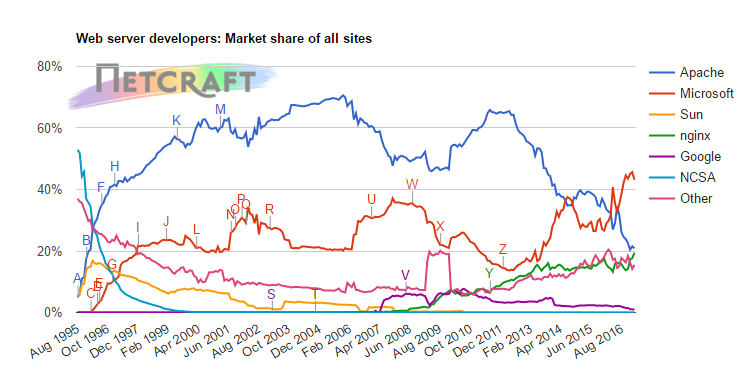I love Firefox and the Mozilla foundation - it was the beacon of innovation when Microsoft tried to kill it with repeated versions of its buggy Internet Explorer! If you were involved in software development or managing online products circa 2005-2008, you would know the nightmare it was to develop a website compatible with IE and its myriad of versions (IE6 was especially notorious)!
At that time, Firefox was our ray of hope, and I would have tried to evangelise almost every friend, family or client to ditch IE and embrace FF. With clients, however, the big problem was, Firefox was an Open Source software and the corporate world has a certain amount of scepticism towards this species of software. [Ironical because most of the largest software services in the world run on Operating Systems which are clones of Linux and most of the web's websites run on Apache - these two being probably the largest Open Source projects in the world!]
In spite of this, when I got this blog post from Mozilla (the non-profit which runs Firefox) in my mailbox, I got thinking about whether Open Source community is right in thinking that Software, where no one takes credit, is really the reason for the success of Open Source? I quote:
My doubts also emerge from the fact that while Firefox did help keep the hope alive during the dark period of 2000-2010 for browser innovation, the real clincher was Google supported Chrome browser.
Today most organisations - SMBs to MNC Enterprises use (or allow) the Chrome browser. Google did significant amount of (subtle) marketing to ensure that it was able to usurp the hegemony of Microsoft over the browser market since Chrome's launch in 2008. And these 'for profit' dollars poured into evangelising corporations probably helped sideline Internet Explorer.
As this chart shows, IE declined steadily once Chrome was launched, while Firefox's penetration levels have remained steady but not really grown much (proportionally) in the intervening years.
Mozilla Foundation is a great organisation - if you are concerned about your privacy, if you are someone who believes in rights of individuals over the state, if you want to keep the web open and secure - you should support them. Geeks and Intellectuals still use the Firefox browser more than they use Chrome. (I am not one of them, I use FF only on special purpose - bit the self-confessed Google fan that I am, Chrome is my mainstay).
Organisations like Mozilla need to exist so that if one day Google, even against its corporate motto, turns evil - we have a ray of hope. However, the example does set back the hope of the early 90s that Open Source will trump Proprietery software one day to create a truly "Free Software" world.
.
At that time, Firefox was our ray of hope, and I would have tried to evangelise almost every friend, family or client to ditch IE and embrace FF. With clients, however, the big problem was, Firefox was an Open Source software and the corporate world has a certain amount of scepticism towards this species of software. [Ironical because most of the largest software services in the world run on Operating Systems which are clones of Linux and most of the web's websites run on Apache - these two being probably the largest Open Source projects in the world!]
 |
| Source: Netcraft Webserver survey 2017 |
My apartment building has a community garden. The building owner started it with a donation of raised beds and soil. What happened next amazes me to this day.Honestly, other philosophies that pride in "no-one, in particular, taking credit" (or Common Ownership) are Communism and Socialism. The concept of everyone contributing to the best of their abilities and being rewarded universally is very Marxist and the Chinese story notwithstanding, we've seen the model failing to deliver in the erstwhile USSR and several other communist colonies which broke down in mid-90s.
One day tools appeared, the next a shed to store them. Seeds were planted. Someone put up string trellises for tomatoes. No one took credit.
My doubts also emerge from the fact that while Firefox did help keep the hope alive during the dark period of 2000-2010 for browser innovation, the real clincher was Google supported Chrome browser.
Today most organisations - SMBs to MNC Enterprises use (or allow) the Chrome browser. Google did significant amount of (subtle) marketing to ensure that it was able to usurp the hegemony of Microsoft over the browser market since Chrome's launch in 2008. And these 'for profit' dollars poured into evangelising corporations probably helped sideline Internet Explorer.
Mozilla Foundation is a great organisation - if you are concerned about your privacy, if you are someone who believes in rights of individuals over the state, if you want to keep the web open and secure - you should support them. Geeks and Intellectuals still use the Firefox browser more than they use Chrome. (I am not one of them, I use FF only on special purpose - bit the self-confessed Google fan that I am, Chrome is my mainstay).
Organisations like Mozilla need to exist so that if one day Google, even against its corporate motto, turns evil - we have a ray of hope. However, the example does set back the hope of the early 90s that Open Source will trump Proprietery software one day to create a truly "Free Software" world.
.


Comments
Post a Comment